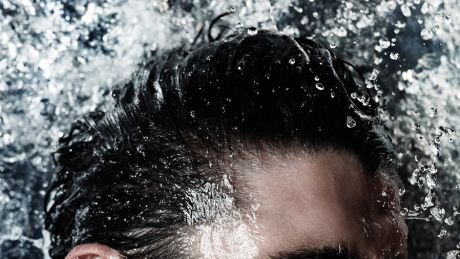Essential Hair Care Tips For Men
Look after your locks with these five simple tips from top men’s hair stylist Anthony Mayes

1. Wash away
A lot of people think washing your hair every day is bad for it, but that’s not true – as long as you use a professional-quality shampoo (ones sold in salons). That’s important because they don’t tend to contain parabens or other ingredients that can cause dryness. You can also use a scalp toner to look after your scalp health.
RECOMMENDED: Four Hair-Strengthening Shampoos
2. Good condition
Conditioning is a good thing because it smooths and softens the hair and takes care of the hair cuticle. However, people with finer hair types can find that some conditioners are a little too heavy because they act like a sealant. If that’s the case, you don’t have to use a conditioner every time you wash it.
3. Tone up
If your scalp is dry or itchy, it’s usually because your hair product is too harsh – and that’s another good reason to consider using a toner. It might seem contradictory but scalp dryness might actually be what’s making your hair greasy, because a dry scalp releases more sebum, which can be hard to control.
4. Keep your cool
Hair is stronger than you think, but if you’re drying your hair aggressively it will come out, especially if you have fine hair. Excessive heat and tension is bad for hair, so if you’re using a strong brush and high heat you’ll damage your hair. Using a hairdryer every day is fine but don’t use it on the hottest settings.
5. Keep it natural
A lot of brands, such as Hanz de Fuko and Balman, are bringing out products which contain plant extracts, argon oil, jojoba butters – even waxes have some natural ingredients in them that nourish the hair. So use the best-quality products you can, and also consider restorative products such as leave-in conditioners.
Anthony Mayes is barbering director at the Refinery Mayfair and an ambassador for Hanz de Fuko. anthonymayeslondon.com
Get the Coach Newsletter
Sign up for workout ideas, training advice, reviews of the latest gear and more.
Coach is a health and fitness title. This byline is used for posting sponsored content, book extracts and the like. It is also used as a placeholder for articles published a long time ago when the original author is unclear. You can find out more about this publication and find the contact details of the editorial team on the About Us page.

